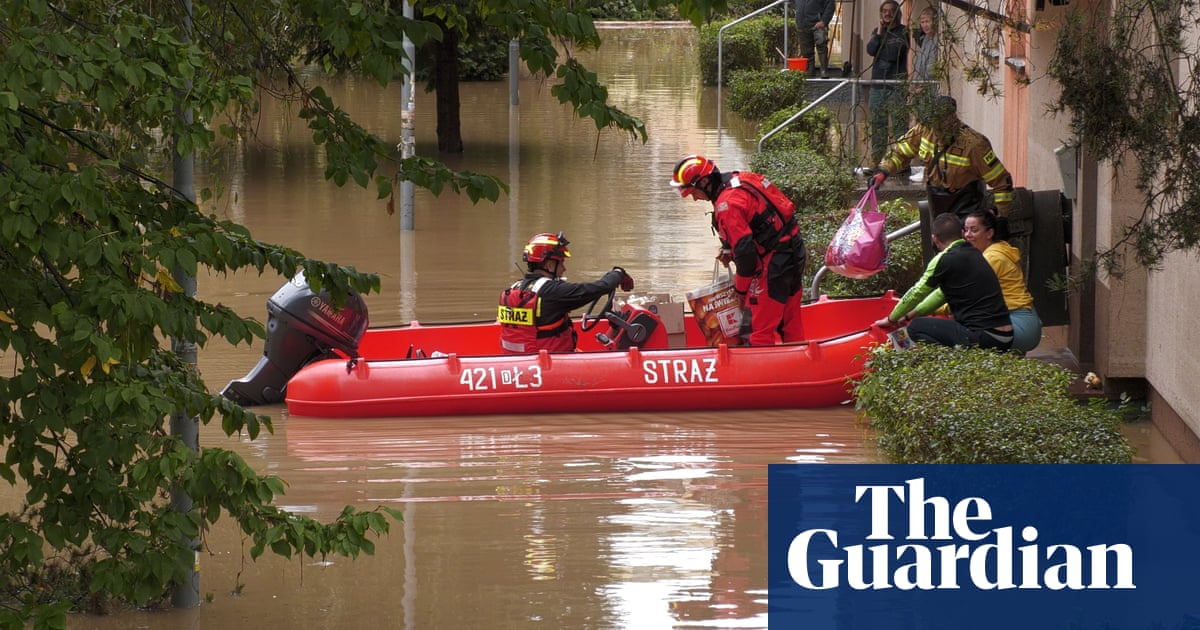
Picturesque towns across central Europe are inundated by dirty flood water after heavy weekend rains turned tranquil streams into raging rivers that wreaked havoc on infrastructure.
The floods have killed at least 15 people and destroyed buildings from Austria to Romania. The destruction comes after devastating floods around the world last week when entire villages were submerged in Myanmar and nearly 300 prisoners escape a collapsed jail in Nigeria, where floods have affected more than 1 million people.
Climate scientists say they are troubled by the damage but unsurprised by the intensity. “The catastrophic rainfall hitting central Europe is exactly what scientists expect with climate change,” said Joyce Kimutai, of Imperial College London’s Grantham Institute.
She said the death and damage across Africa and Europe highlighted “how poorly prepared the world is for such floods”.
Scientists take care when attributing extreme rains to human influence because so many factors shape the water cycle. Although it is well established that hotter air can hold more moisture, whether violent downpours occur also depends on how much water is available to fall.
Sonia Seneviratne, a climate scientist at ETH Zürich, said immediate analyses of the central European floods suggested most of the water vapour came from the Black Sea and Mediterranean Sea, both of which have grown hotter as a result of human-induced climate breakdown, resulting in more water evaporating into the air.
“On average, the intensity of heavy precipitation events increases by 7% for each degree of global warming,” she said. “We now have 1.2C of global warming, which means that on average heavy precipitation events are 8% more intense.”
after newsletter promotion
Weather station data indicates that bursts of September rainfall have become heavier in Germany, Poland, Austria, the Czech Republic, Hungary and Slovakia since 1950, Kimutai said.
In Poland, the floods collapsed a bridge and washed houses away, according to local media. In the Czech Republic, helicopters rescued stranded citizens from rising waters. In Austria, one firefighter is reported to have died in the rescue efforts.
In the Austrian capital, Vienna, which has been home to Europe’s biggest weather and climate conference since 2005, the rain flooded a motorway and closed metro lines.
Erich Fischer, a climate scientist at ETH Zürich, said scientists at the conference used to discuss the physics of how climate change increases rainfall intensity over lunch on the banks of the New Danube. “It is ironic to now see these banks, where we were sitting in the sun and discussing the science of extreme precipitation, now being flooded.”
The death toll from floods hinges on how well communities prepare for the rain and respond to its effects. Scientists have urged governments to invest in adapting to extreme weather events through early warning systems, more resilient infrastructure and support schemes for victims, while also ending their reliance on fossil fuels.
“It’s clear that even highly developed countries are not safe from climate change,” said Friederike Otto, a climate scientist at the Grantham Institute. “As long as the world burns oil, gas and coal, heavy rainfall and other weather extremes will intensify, making our planet a more dangerous and expensive place to live.”
Source: theguardian.com


















